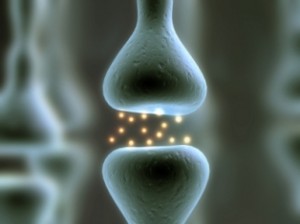Omega-3 for Your Brain
Omega-3s May Improve the Brain Chemistry of the Mentally Ill
Few things fascinate me more than the human brain. It’s just amazing to me how slight variations in brain chemistry can significantly alter a person’s thinking patterns and perceptions.
It’s easy to fall under the assumption that a person’s brain chemistry (if they don’t produce enough serotonin, for example) can only be altered through the administering of pharmaceutical drugs, but our nutrition plays just as significant a role.
The latest example of this is with regards to psychosis. Psychosis is a severe mental disorder that’s characterized by a person not being able to distinguish between what’s real and what isn’t. People with a form of psychosis often see things or hear things that aren’t really there, feel an overwhelming sense of fear for an unexplained reason, display extreme excitement for an unexplained reason, or act out in a way that’s abnormal for them. Schizophrenia is an example of a psychosis-related disorder.
People with psychiatric disorders are often placed on anti-psychotic drugs. Now, I certainly am not one to question a medical doctor’s advice for how to treat someone with a form of psychosis, but I think any doctor would agree that treating a person with psychosis through natural means is best.
If doctors agree with me—and I’m confident that most do—then get a load of this:
Fish oil supplements may help “beat psychotic mental illness.”
Those aren’t my words; those are the words straight from the authors of a new study published in the Archives of General Psychiatry.
The study—titled “Long Chain Omega-3 Fatty Acids for Indicated Prevention of Psychotic Disorders—followed 76 people deemed at “high risk” for full-fledged development of psychosis.
To see if psychosis could be avoided, researchers randomly assigned some of the men and women with a daily placebo or a fish oil supplement that had 1.2 grams of omega-3 (i.e. 700 milligrams of EPA, 480 milligrams of DHA).
After 12 weeks of supplementation, the results were truly telling. For those that did not supplement with omega-3, about 28 percent of them were eventually diagnosed with a form of psychosis. Contrast that to those supplementing with omega-3—just 4.9 percent of them were eventually diagnosed with a form of psychosis!
Writing in the pages of the Archives of General Psychiatry, the authors second what I said earlier: “The finding that […] a natural substance may prevent or at least delay the onset of psychotic disorder gives hope that there may be alternatives to anti-psychotics…”
And that’s what alternative medicine is all about: It’s about providing people with another option for treatment, minus the side effects.
There’s no question that antipsychotics work for people, but it’s becoming increasingly clear that natural alternatives can be just as effective…minus the side effects.
Sources:
tehrantimes.com
nutraingredients.com
health.google.com
news.bbc.co.uk
Related Posts
- Omega-3 Fatty Acids Cut Colorectal Cancer Risk in Men, Study Finds
- Lower Risk of Eye Disease with Omega-3
- Omega-3 Fish Oils Greatly Reduce the Risk of Three Major Diseases, Study Finds
- Higher Intake of Omega 3 Fatty Acids Linked to Positive Mood and Outlook, Study Concludes
- Can Omega-3 Fatty Acids Prevent Alzheimer’s?
 
|
Enjoy this article? We guarantee your privacy. Your email address will NEVER be rented, traded or sold. |
Visit my new site: Self Help On The Web
 |
 |
Posted: February 13th, 2010 under Fatty Acids, Psychosis.
Tags: fish oil capsules, food for the brain, health benefits of fish oil, omega 3 brain, omega3 fish







